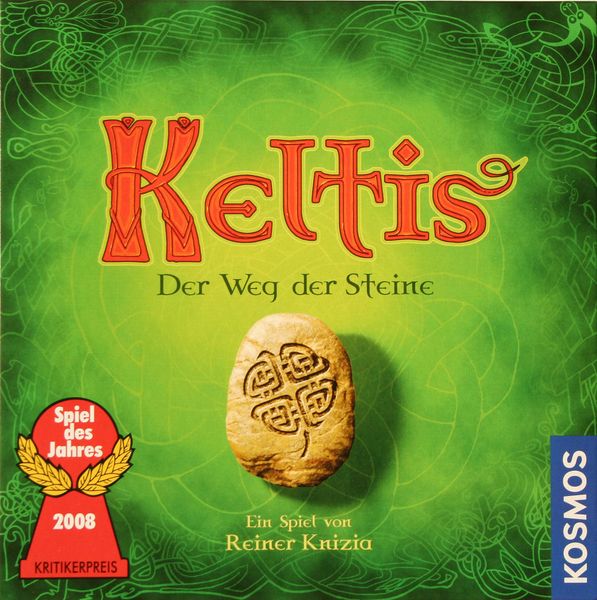Keltis (2008) Board Game
Keltis is a popular board game designed by Reiner Knizia and released in 2008 by KOSMOS. The game is part of the Lost Cities series, known for its family-friendly gameplay and engaging mechanics. Keltis combines hand management, point-to-point movement, and set collection elements to create a unique and strategic gaming experience.
Game Components of Keltis
How To Setup Keltis
To set up Keltis, each player starts with a hand of cards. The game board is placed in the middle, and each player’s stones are positioned at the starting area of the board. The deck is shuffled, and cards are dealt to the players. The remaining cards are placed face down to form a draw pile, with a few cards turned face up to create a discard area.
Gameplay Mechanics and Game Objective
Player Experience
Keltis offers a dynamic and strategic experience, with players needing to balance short-term moves with long-term strategies. The game’s mechanic of ascending or descending card values adds a layer of complexity, allowing for more tactical decisions compared to similar games like *Lost Cities*. The constant shift in the board state keeps players engaged and adaptable.
Pros
Cons
Personal Thoughts on Keltis
Keltis is an excellent choice for those who enjoy strategic card games with a mix of planning and adaptability. It is particularly suited for players who appreciate the intricate mechanics and the constant need to adjust strategies. While it may not be the best fit for very young children due to its complexity, it is a great addition to any board game collection for families and casual gamers looking for a challenge.
We are supported by our audience. When you purchase through links on our site, we may earn an affiliate commission, at no extra cost for you. Learn more.

